LATE SHIFT Review
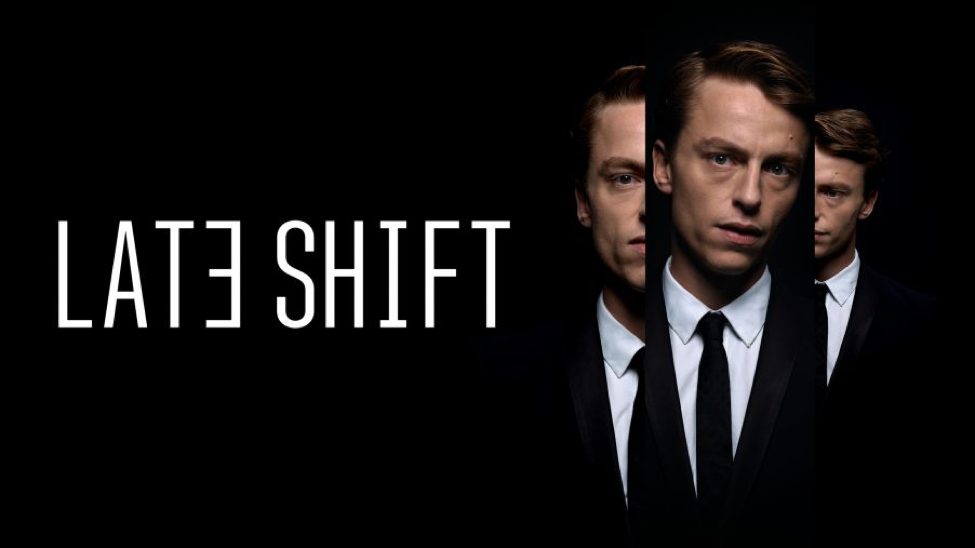
For the longest time, FMVs were considered obsolete, a storytelling crutch for video games before the technology for quality CGI cinematics became readily available to developers. The limited instances of FMVs during the 2000s were largely relegated to franchises that sought retro appeal, such as Myst and Command & Conquer, and any appearances outside of said series were usually perceived as a gimmick. Once cutscenes started getting longer, and even began to define some games, the movement for games to emulate film gradually grew momentum within the industry. Telltale Games and titles like LIFE IS STRANGE feature minimal gameplay between cinematics, and UNTIL DAWN is entirely composed of digital depictions of famous Hollywood actors being butchered in a B-movie slasher script. Suddenly, the idea of putting a movie in a game wasn’t so far-fetched anymore, hence the return of FMV narratives as a legitimate narrative technique.
LATE SHIFT is one such game, and Wales Interactive bills it as, “The world’s first cinematic interactive movie.” While it isn’t the first narrative adventure game to utilize FMV presentation, LATE SHIFT was the first to premiere in cinemas last year. The UK event saw theatergoers making communal decisions via a smartphone app, with the majority vote carrying through. In the recent commercial game version, that privilege is left exclusively to you. It’s the player’s job to call the shots for Matt (Joe Sowerbutts), a London valet who gets conscripted at gunpoint to help steal an ancient Chinese rice bowl. It’s only after he nabs it that Matt finds out the owner of the bowl is a powerful Triad, and finds himself in the same crosshairs as the rest of the thieves. As the player, you’ll either guide Matt to sabotage the heist and clear his name, or play along with the plan and earn his share.
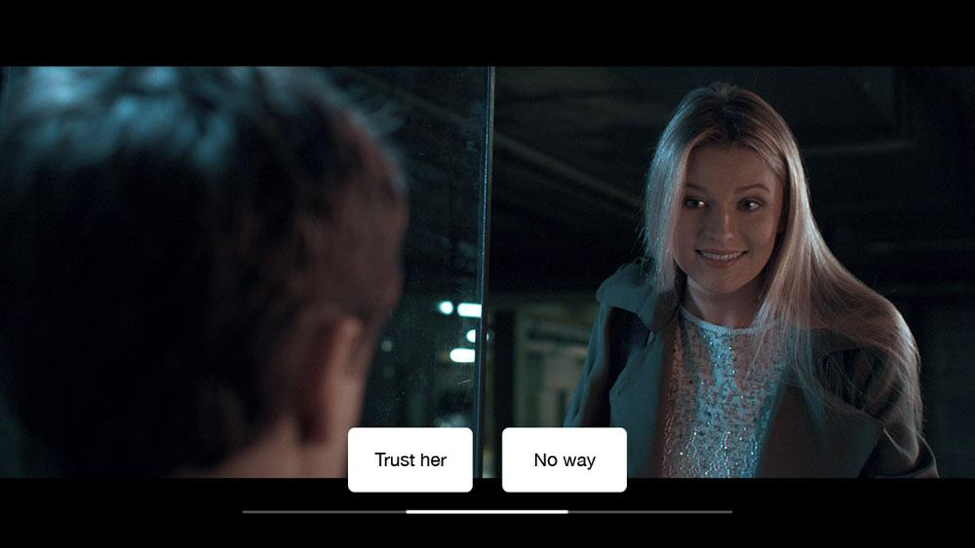
LATE SHIFT is an oddity in that it proves that a good, interactive FMV with a comparable level of player input to something like UNTIL DAWN is feasible, even if it doesn’t quite earn that appraisal itself (more on that in a bit). LATE SHIFT isn’t an example of good filmmaking: the lighting is amateurish, many of the performances are even more so, and the production design is all over the place. (Which side of the road do people drive on in this version of London? Make up your minds!) The opening monologue is the same yawn-inducing “choices matter” tripe that games have been serving up for decades now. What LATE SHIFT does demonstrate is good FMV-making. In almost every “cinematic narrative” title out there, critical plot branches will afford the player as much time as they need to make a decision. Whether it’s pausing the action so that the player can peruse a list of options, or simply letting characters stand in awkward silence while a decision is made, flow has never been a strong suite in this genre of gaming. Still, this is gaming, and there is a layer of added artifice lent by digital rendering that allows gamers to accept these breaks in reality as part of the experience.
LATE SHIFT is live action, however, and such irregularities would stand out like a sore thumb. LATE SHIFT’s solution to this problem is as simple as it is obvious: scene transitions bordering these junctions are shot so smoothly, and staged so universally, that the film as a whole proceeds seamlessly no matter what path is taken. In one particular moment halfway through the FMV, the results of a decision will either lead Matt to visit a hospital with an accomplice or head off on his own to burgle a mansion and terrorize its elderly owner with a golf club. Believe it or not, both of these routes are completely natural progressions of the previous scene. Despite the average playthrough clocking in at 90 minutes, there is supposedly over four hours of footage total within LATE SHIFT, which is far more “branch” material than most video games.
That all of these varying possibilities fit within the same basic premise is a small miracle. What’s even more impressive is that all of LATE SHIFT’s endings feel equally valid. Some see Matt die ignominiously, some see him screw over his companions for a bigger cut, and some see him simply happy to escape from the chaos with nothing more than his life and all 10 fingers still attached. The heist might not be the most novel of concepts, but it proves to be a flexible nexus for a full range of possibilities. And while the dramatic elements certainly have their corny aspects, the numerous twists in the plot prove to be supremely captivating, if not for their cleverness or implementation, then at the very least for their effort to jockey control of Matt’s fate away from the player.
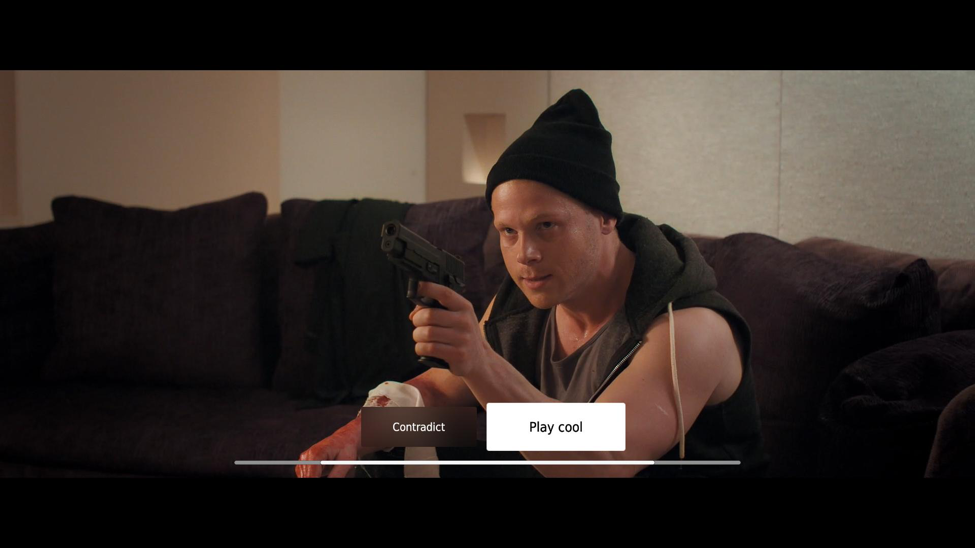
Pfft, I’m always cool
It’s tragic that the one problem plaguing this structure, the Achilles heel of the whole experience, is LATE SHIFT’s lack of playability, or more specifically, replayability. As previously mentioned, LATE SHIFT takes about an hour-and-a-half to complete, but there are multiple different endings, and even paths to said endings, to explore. Unfortunately, LATE SHIFT lacks a scene select system, meaning that you have to replay the entire FMV from the start if you wish to change up your strategy. Beating the game doesn’t allow you to restart midway through, and there’s not even a checkpoint system, so if Matt meets an early end, it’s alllll the way back to the beginning for you. It’s a critical oversight, and an obvious one at that, as most video games in this genre have had similar systems implemented by default for years now.
Compounding this problem is a lack of a fast-forward system to skip repeat scenes that you’ve already experienced, which makes the single-lane (and rather long) first act even more of a slog to get through. Since most of the important branches occur an hour into LATE SHIFT, getting to them is a bigger chore than any fetch-quest or RNG settlement defense mission I’ve had the displeasure of playing. LATE SHIFT has a stats page that shows how many of the possible scenes and endings you’ve unlocked, but it doesn’t tell you what choices you made to trigger them in the first place, which makes going back to find the alternatives a game of guesswork. Furthermore, some choices are worded so vaguely that it feels utterly cheap when Matt doesn’t do exactly what you’d expect him to. One of the possible final decisions is to either “toss him the bowl” or “set the bowl on the table.” Though both of these actions ostensibly carry the same intent, either one will railroad you towards a wildly different ending from the other, potentially undoing over an hour of hard work.
I would love so much to recommend LATE SHIFT. It’s a riveting interactive narrative that only helps prove that FMV does have a place as an intermedium method of storytelling. But unlike a good movie, there is no enjoyment in rewatching 90 minutes of LATE SHIFT; the joy only exists when the player is experiencing brand new content. When so much of that fresh footage is locked behind tired retreads, even the thought of trying to dig it up is exhausting. This inaccessibility could be easily remedied with a patch or mod (and who knows, that may happen yet), but in its current form, LATE SHIFT is one rabbit hole you can afford not to jump down.
Verdict: Do Not Recommend
Reviewed on PlayStation 4, also available on Xbox One and PC

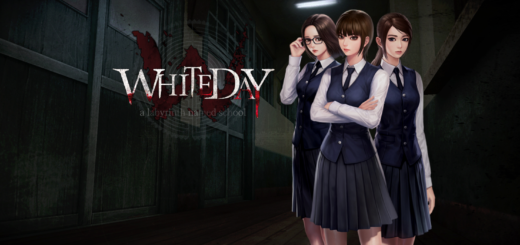
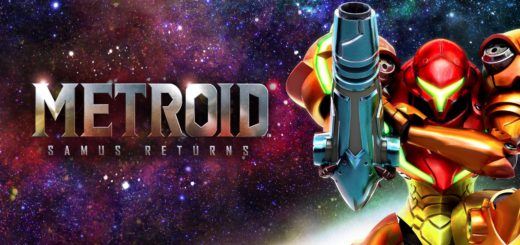
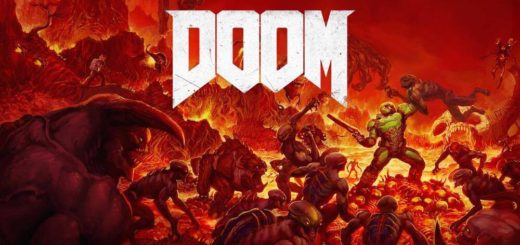
1 Response
[…] to film technique, as it doesn’t seek to be an interactive movie in the vein of UNTIL DAWN or LATE SHIFT. Instead, I’m more impressed by how seamlessly themes and mechanics support each other. Senua’s […]